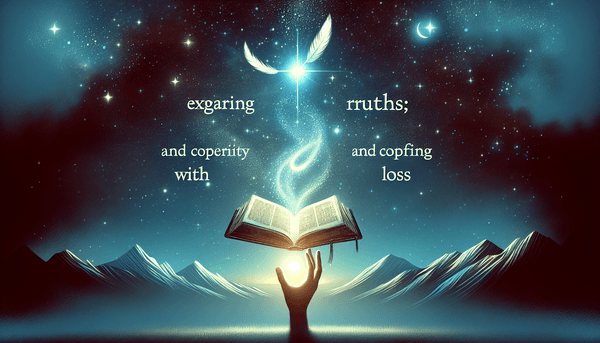The Resurrection Account in Matthew 28:8-15
In the radiant dawn of Jesus' resurrection, the women who visited the tomb experienced an array of emotions from fear to joy as they met an angel who proclaimed the astounding news: 'He is not here; for He is risen, as He said.' (Matthew 28:6). They were instructed to share this with the disciples, a commission that would soon be reinforced when they encountered the risen Christ Himself. Jesus' appearance offered them both reassurance and a mandate to bring the disciples to Galilee. Meanwhile, the guards, after witnessing the divine events, reported to the chief priests who conspired to preserve their own authority by disseminating falsehoods, bribing the guards to claim Jesus' body had been stolen (Matthew 28:12-13). This narrative paints a striking contrast between the faithful witness of the women and the deceit of the religious leaders, underscoring the reliability of the resurrection account through multiple witnesses and the lengths to which some will go to suppress the truth.
The Influence of Others’ Actions and Christian Discernment
In a world where societal pressures often dictate behavior, Romans 12:2 serves as a clarion call to Christians to resist conformity and instead seek transformation through the renewal of the mind, enabling us to discern God's will. This transformation is crucial as it allows us to navigate the complexities of life without losing our moral compass. Paul's instruction to 'Follow my example, as I follow the example of Christ' (1 Corinthians 11:1) suggests that we should seek role models who embody Christ-like virtues. It's not about blindly imitating others but about critical discernment of whom we choose as our influences. As followers of Christ, we are called to be selective about our company, for as 1 Corinthians 15:33 warns, 'Bad company corrupts good character.' The actions of those around us can either lead us towards righteousness or away from it, and our challenge is to choose wisely.
Changing Churches: A Biblical Perspective
Deciding to change church communities can be a significant spiritual decision. It involves many factors, from seeking a congregation that fosters spiritual growth to finding a place where one can effectively use their God-given gifts. Scripture emphasizes the importance of fellowship and unity in passages such as Acts 2:42, where the early church devoted themselves to the apostles' teaching and fellowship. The church is described as a body in 1 Corinthians 12:25-26, where each member should care for one another. Changing churches is not inherently wrong, but it must be approached with prayerful consideration, ensuring that the move promotes personal and communal growth in faith, aligns with biblical teachings, and contributes to the unity of the body of Christ.
Stewardship of the Earth: Biblical Teachings
As caretakers of God's creation, we are tasked with a profound responsibility to manage the earth wisely. The Bible begins with God entrusting humanity with dominion over the earth (Genesis 1:28), a role that requires both respect for the creation and prudent use of its resources. The Psalmist reminds us that 'The earth is the Lord's, and all its fullness, the world and those who dwell therein' (Psalm 24:1), underscoring that while we are stewards, we are not the owners. This perspective calls us to a deeper sense of accountability and an ethos of conservation and generosity, living in a way that honors the Creator and serves the common good.





